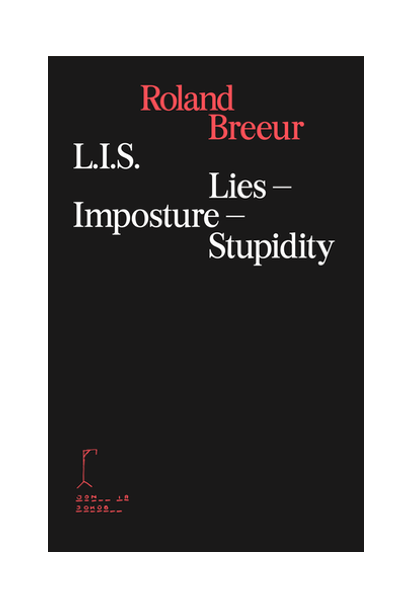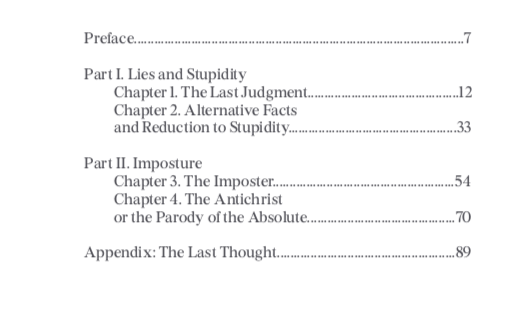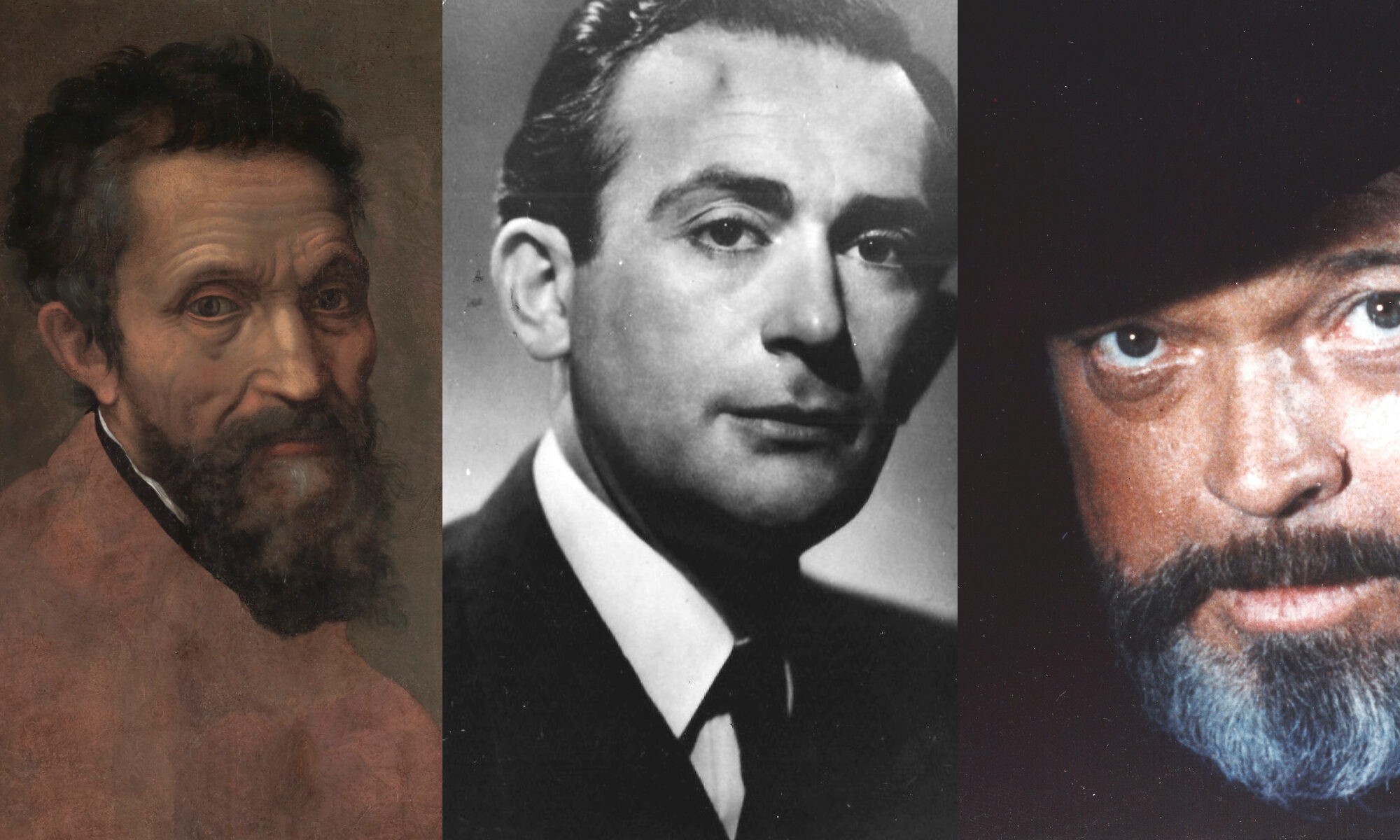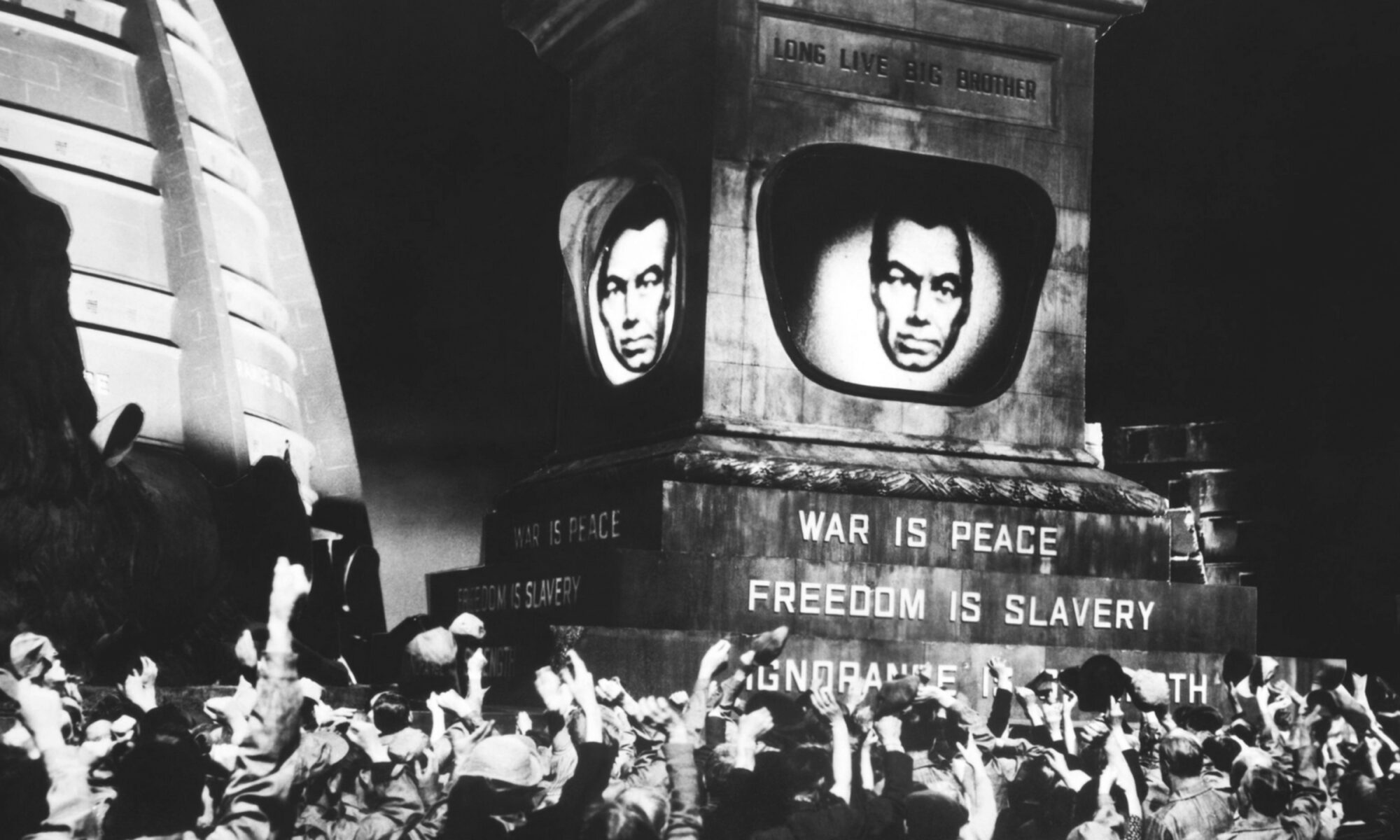The task of philosophy, Deleuze tells us, is not to provide ‘solutions’ to philosophical questions, but to create concepts in order to respond to problems that exert an undeniable demand to be addressed. Such responding consists in the mere fact of addressing the problem, that is to say in the ability to disclose a previously concealed conceptual domain, in order to articulate the problem in the first place. If disclosing of that sort ever takes place, it is because the world in which the philosophical thought is situated puts forward the task of articulating something that initially lacks the clearness and distinctiveness of Cartesian ideas, yet stubbornly resonates with our intuition. Propelled by such resonance, our intuition is driven to orient itself through what is traditionally called logos, with the aim of articulating in words something that until then remained ineffable, but by no means negligible.

Pointing out that our contemporary situation calls for a distinction between what is fake and what is genuine, entails both the philosophical problem and the originality of professor Roland Breeur’s essay Lies — Imposture — Stupidity. It is worth mentioning that being part of the series Margins, as launched by the Lithuanian publisher Jonas Ir Jokūbas, Breeur’s book has an unconventional academic format. Less of a channel for predominantly technical academic analyses, Margins provides a platform for free intellectual expression, combining the liberty of the essayistic format with theoretical scrutiny of academic scholarship. Blending both of these principles, the essay comprehensibly ties together the gravitational points around which Breeur’s philosophical thought orbits in this second issue of Margins.
One such gravitational point consists in what could be called the ‘potency of truth’. Some truths are impotent, while others are powerful, and both of these qualifications are exhibited by the degree of intensity inherent to the effects that a truth is capable of producing. If there is indeed anything like a post-truth era, the ‘post’ refers not so much to the age of disinformation, but rather to the circumstances in which truth loses its potency and, while remaining true, becomes stripped of its authority. A truth without authority is incapable of inciting us to act or to produce a difference. Instead, it becomes a constant repetition of the same, consisting of merely a set of impotent clichés that originally contained something potent, but have now lost their power to affect us – similar to how a word loses its sense and transforms into meaningless materiality when incessantly and mechanically repeated. If anything, the conditions defined by impotent truths are the perfect breeding ground for ontological parasites, powers that exploit the authority of truth, affirming themselves in their pretense to be something that they are not – while what they actually are, by virtue of their internal rather than parasitic necessity, amounts to nothing.
“Perhaps the most peculiar thing about the so-called post-truth era is not so much the idea that some people do not attach the same value to factual truth as they do to untruth or opinion, but rather the paradoxical circumstance that factual truths, though still factual, have become weak as their potency has been relocated to untruths or fake truths.”
Perhaps the most peculiar thing about the so-called post-truth era is not so much the idea that some people do not attach the same value to factual truth as they do to untruth or opinion, but rather the paradoxical circumstance that factual truths, though still factual, have become weak as their potency has been relocated to untruths or fake truths. We thus find ourselves in a world characterized by an aletheic-schizoid condition, a simultaneous coexistence of facts and ‘alternative facts’, with the latter having worked their way into our epistemic apparatus, so as to nestle there like a worm, assuming the identity of ‘factual truth’ and manipulating our perception into the incapacity to distinguish between what is true and what is false. Due to its power to elevate a fiction beyond the domain of true and false by exploiting their very demarcation, this worm is not just a parasite, but above all an impostor; it is someone who possesses us by blurring all vital distinctions and demarcations constitutive of our reality, and doing so in order to attain profit.
This is also why it would be an injustice to reduce Breeur’s work to an investigation of post-truth as such, which is a phenomenon that merely remains in the background of his essay, and which he touches only briefly and en passant. One should rather consider his reflection on post-truth to be one of the inevitable side roads that he takes while progressing through a more persistent line of thought pertaining to the problem of imposture and its relation to stupidity and lies. Yet it is precisely this entry point into post-truth as a phenomenon, that establishes the philosophical originality of Breeur’s perspective. By means of the phenomenological perspective, the author breaks through the epistemological surface and enters into the ontological domain from which the phenomenon of post-truth might be said to emerge in the first place. That deeper, underlying domain is the domain of the fake.
It would not be fully accurate to say that the author’s approach to fakeness is purely phenomenological, since his philosophical framework draws both explicitly and implicitly not only from the writings of Sartre and Arendt, but just as much from contemporary French thought of Deleuze. Thus, while the problem of imposture initiates in a phenomenological analysis of lies as rooted in the act of imagination – an act through which consciousness neutralizes or ‘annihilates’ the real in favor of what is not real – the attained concepts are subsequently picked up in order to become philosophical in a Deleuzian sense of the word. Breeur puts his concepts in service of a creative thought that transcends replication and futile conceptual division, yet he does so without failing to ensure that the resulting philosophical reflection does not stray away from the exigencies of reality as imposed on us through lived experience. The examples provided from the world of art, literature and real life persistently attune the author’s reflection to result in what I can only describe as the philosophical ‘honesty’ or ‘genuineness’ that is so distinctive of the timbre of this essay, which stands in stark contrast to the fakenessthat it seeks to explore.
To say that imposture is ‘fake’ entails more than assigning it a place on one side of the binary opposition between true and false. A lie is simply a negation of reality through an assertion of falsehood. In case of imposture, on the other hand, the capacity to lie initiates and maintains a chain of (dis)simulations, all of which construct a narrative or a fiction that operates beyond what is true and false, putting reality in function of the first lie that has now become the main organizing principle of the impostor’s world, the cardinal simulacrum. The case of the famous impostor Jean-Claude Romand, for instance, started with him lying about passing a medical exam. This lie became the main organizing principle of an expansive narrative about a respected medical professional. With the initial lie transformed into a simulacrum, Romand’s entire reality has to be re-organized according to the demands of that simulacrum; and to the extent that reality resists such reorganization or assimilation, it has to be eliminated in order to be substituted by fiction. We thus witness how the fiction about a respected medical professional persistently sought to neutralize all traces of the real, be it witnesses or documents – signs of the fact that behind the fiction there was no medical professional, no person Romand’s wife thought she had married, no father his children thought they had, and no son his parents were convinced of having; there was, in fact, nothing.
The more reality affirms itself against fiction, the more fractures the narrative is bound to show, ruptures through which the real resurfaces with the promise of devouring the simulacrum, inseminating the present with imminent collapse of the narrative. It is only fitting, then, that the ontological violence with which Romand suppressed the recurrent traces of the real, exploded at the point where the amount of fractures in the constructed narrative surpassed the limit of what fiction could sustain, upon which it came crashing down with a violent force, concluding the story in a tragedy that occurred when Romand murdered his family because they started to see through the illusion that he compulsively imposed. If for eighteen years there was no need for a tragedy, it is because the narrative, as Breeur puts it, “worked” – which means that it had successfully replaced reality with fiction. Romand’s transformation from liar to impostor was hence achieved when his dissimulations turned into a complex fictive whole that, as long as it worked, not only exploited the authority of what he was trying to simulate, but also profited from the fact that untruths can be very potent, while truths can be impotent or weak.
In the case of Romand, there were times when a trace of the real would resurface, and someone in his entourage would sense that something was not quite right. Some insignificant detail increasingly attained an undetermined significance for no apparent reason, like a seemingly meaningless remembrance that sticks to the back of one’s mind, stubbornly refusing to fade away, attaining a gravity that exerts a growing weight while leaving us clueless as regards its meaning. Yet if such unarticulated, unclear and indistinct ‘truth’ ever reached the intuition of those who were unwittingly involved in Romand’s narrative, it did not possess the power to sufficiently attract their suspicion by means of its magnetism. In other words, it was not potent enough to produce a resonance sufficiently intense to be explored, because such resonance dissolved in the persistent hum of the powerful fiction that Romand constructed. Fittingly, in Nicole Garcia’s cinematic interpretation of the Romand case in the film The Adversary, there is a scene that depicts Romand’s best friend uttering the following words after Romand’s imposture has been exposed: “The possibility never even occurred to me; or maybe I just wasn’t listening.”
A fiction ‘works’ when it succeeds in making us blind to anything that threatens the fiction in its existence; and what threatens an ‘alternative history’ in its existence is not objective truth, but the potency of that truth to resist assimilation into fiction. Such assimilation amounts to the way in which fake history destroys original history by replacing it in its being. The day Stalin erased Trotsky from all historic documents, marked the beginning of a process in which fake history sought to replace the real – not by destroying the physical carriers of objective facts stored in the collective memory of the Russian people, but primarily by depriving those facts of their potency to exert an impact on reality. Were Stalin ever to have fully succeeded in that goal, any remainder of original documents, that is to say any resurgence of an objective historic fact, would have lacked authority to put the by then established fiction into question. Conversely, if such idiosyncratic documents were in fact to possess the potency to resist an assimilation into Stalin’s fiction, their potency would express itself by means of its capacity to separate fiction from reality, so as to re-establish the demarcation between true and false, consequently relocating fiction into the realm of the false. In fact, one might even say that (im)potency of truth amounts to the very (in)capacity to perform such an ontological procedure, an operation through which the ‘aletheic malleability’ of reality is put in service of either the false or the true, in order to mold reality in conformity with the corresponding narrative.
One might rightfully ask to what extent it is possible to fully replace reality by fiction. On the one hand, it is clear that reality always resists erasure. As the case of Romand illustrates, as soon as one puts reality in service of a single simulacrum, one is condemned to persistently erase the ceaselessly recurrent traces of the real, and this to the extent that the real resists assimilation into a narrative. In order to fully exchange reality for fiction, the impostor needs to change the texture of reality itself, and until such absolute modification is complete, there will always be a witness or a remainder that comes along to threaten the fiction. Since it is impossible to completely transform the texture of reality, it seems that, at the end of the day, truth will always prevail. Yet one might also ask to what extent the traditional Judeo-Platonic credo that ‘truth will prevail’ considers the possibility that a truth can also be fake, and that a fake truth, if it is sufficiently potent, might in fact prevail just as much. It is easy to imagine a world in which Stalin had succeeded, and where the witnesses of an erased history are reduced to the same insignificance as those eccentric few today who, for whatever reasons, claim that our conception of Russian history is distorted by Western propaganda, and that the Stalinist era was the best of all possible worlds. The fact, then, that one cannot fully erase all traces of the real, does not ultimately matter, since what makes reality ‘real’ in the first place is capable of losing its potency to produce and maintain an effect.
The main threat that fake truths impose on us, does not so much originate in their being un-truths, but rather in the power or potency that this ‘un-’ possesses, especially when this potency overpowers the potency of a truth. We do, after all, only speak of impostors after they have been exposed, while the ones whose fiction has worked until the end, find themselves outside of our field of vision. Such impostors have attained precisely what Stalin failed to achieve, namely an absolute substitution of reality by fiction. In a sense, their fiction has worked so well that it attained a status of being-real equal to what Descartes assigned to reality before it occurred to him that there might be something like a malin génie. This, I believe, brings us to the most unsettling part about fakeness: Sometimes the fake is so potent, that we never get to a point of seeing through it. Indeed, as mentioned earlier, the very demarcation between true and false becomes completely blurred by an insurmountable fiction. If it is the task of the impostor to purposefully attain such confusion, then the task of those who fight against imposture is not to resort to impotent clichés, such as mechanical repetition of factual truths, but to revitalize the potency of truths that are capable of discharging their counterfeit doubles. Without such revitalization, our battle against fake truths itself becomes a fake battle, making us, in Breeur’s words, “complicit in and therefore responsible for the proliferation of untruths.”




